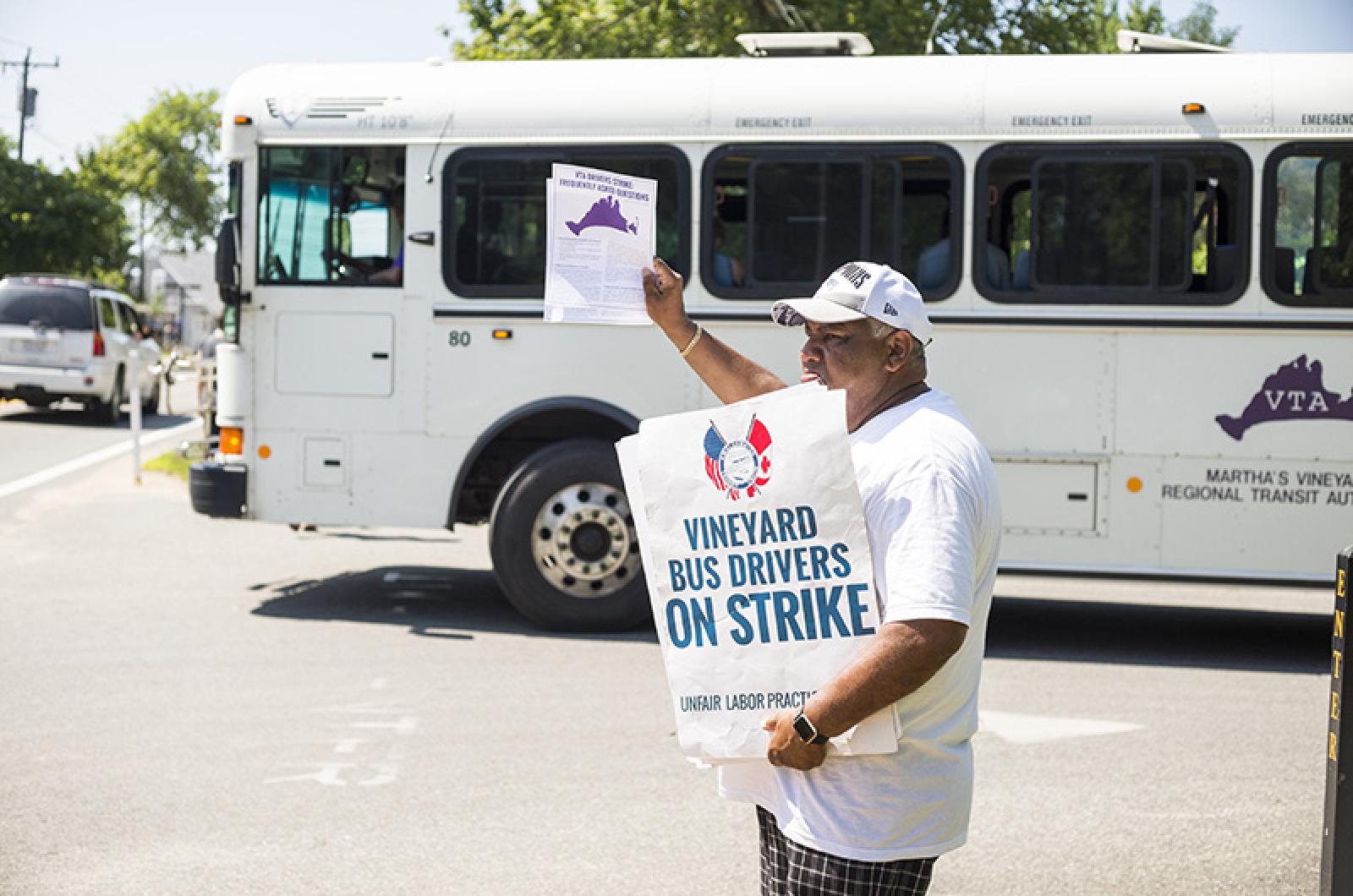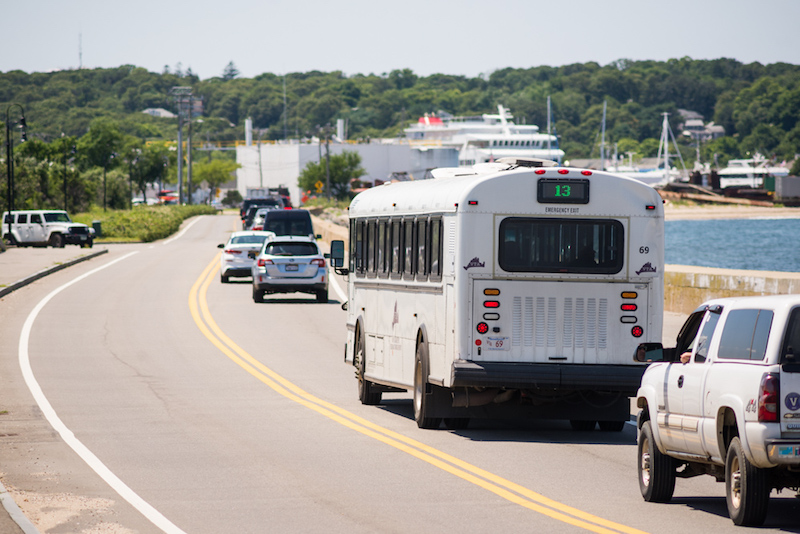The union that represents the VTA drivers announced late Thursday that a tentative agreement had been reached with their employer, Transit Connection Inc.
“This is a victory for VTA bus drivers and all working families on our Island,” said driver Richard Townes in a press release that went out just before midnight Thursday. “The strike worked.”
Full-time drivers walked off the job on June 28. The strike has galvanized the Vineyard community and beyond this summer, with state and federal legislators and other politicians throwing their support behind the 21 striking drivers, who have been battling their employer over the right to unionize for five years. Both sides have been in contract talks since January.
The tentative agreement is subject to a ratification vote by members of the Amalgamated Transit Union Local 1548 on Sunday.
“We didn’t get everything we deserve, but we got a lot closer to what we need and saw significant improvement from the company’s last offer in early June,” Mr. Townes said in the statement.
According to the press release, the tentative agreement includes wage increases, with the highest wage rate increasing from $23.50 to $25.50 starting August 1. The top rate will increase again in a year to $27, with a final increase to $27.50 on August 1, 2021. The starting wage rate for new hires will increase from $16.50 to $19.50, and will also go up for the next two years, topping out at $20.50 in 2021.
In another big win for the drivers, seniority will be recognized when it comes to routes worked. Drivers who work on holidays will be paid double their hourly rate, and the agreement includes layoff protection for union members.
The announcement followed two days of negotiations with a federal mediator, held early this week.
Both sides in the dispute told the VTA advisory board Wednesday they were approaching an agreement that would end the monthlong strike.
“We have made significant progress in the negotiations,” said Darren Morris, the general manager for TCI, which is contracted by the VTA to operate the buses.
Mr. Morris also said that among roughly 29 problems to address on the proposed contract, “the hardest part is the economic one, which I believe we are in agreement on.”
He continued: “There are a few things left, such as language issues . . . but we are just about there . . . and we are looking forward to welcoming the drivers back to work next week.”
Held at the VTA administrative offices in the airport business park, the meeting was heavily attended by striking drivers, town officials and members of the public who support the drivers, in addition to the VTA administrators staff and advisory board members.
About a dozen striking drivers were also on Beacon Hill in Boston that afternoon, demonstrating in front of the Massachusetts State House.
Talks had remained stalled until last week, when the VTA advisory board addressed the drivers for the first time since the strike began and voted to send both sides back to the negotiating table under the observation of the federal mediator.
TCI and the VTA have hired temporary drivers to replace the drivers out on strike. The replacement drivers have kept the buses running at almost 100 per cent service, according to VTA administrator Angela Grant, although the VTA Medivan service, which provides affordable transport to off-Island hospitals, has been cancelled.
Gregory Dash, a labor relations consultant, and Mr. Morris represented TCI in the negotiations this week. The union was represented by Steve MacDougall and Chuck Ryan. The drivers were represented by Richard Townes, Jason Chalifoux and John Christensen.
“I think the last advisory board meeting kicked the talks into gear and exerted pressure to settle,” said Mr. Christensen after the meeting.
“The agreement is only about two shiny quarters away from where we started,” Mr. Christensen said. “But we shook hands after yesterday’s meeting for the first time since negotiations started.”
According to Ms. Grant, the VTA has its sight set on securing an extra $95,000 in state funding for the next fiscal year. After the meeting, she said that will help with funding the potential raises, but still may not be enough.
“We will still need some type of reduction [in service], unless there is a money tree that brings us the rest of the funding . . . about $300,000,” Ms. Grant said.
The VTA raised fares beginning July 1, which is expected to bring in an extra $225,000.
On Wednesday the advisory board also discussed plans to establish a subcommittee that would be responsible for making the budget work, and limiting the amount of reduced service once a final contract is agreed upon.
“Whatever we get back from the bargaining unit we are going to have to make work,” said Elaine Miller, the Tisbury representative on the board.
The meeting was marked by a noticeable change in tone from last week’s meeting, when board members argued among themselves and were criticized by members of the public for being too hands off in the contract dispute, which has grown highly charged this summer.
After they were brought up to date on events from the previous two days, the board discussed plans to acquire two more 30-foot electric buses this fall.
And while the dispute appeared to be nearing some kind of resolution, it was not quite water under the bridge for the drivers, who have been locked in talks for more than a year and have gone without pay for weeks.
“Am I happy with 18 months of negotiations, one month on strike?” said Mr. Townes, a longtime driver who is part of the ATU bargaining committee. “I’m not happy with the way it has gone, but I think both sides conceded some issues.”








Comments (3)
Comments
Comment policy »